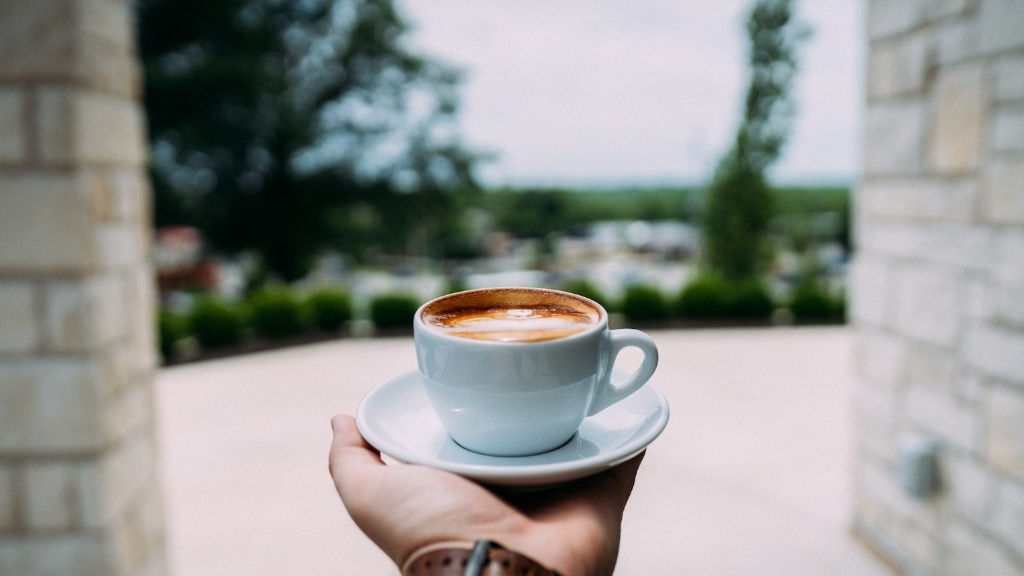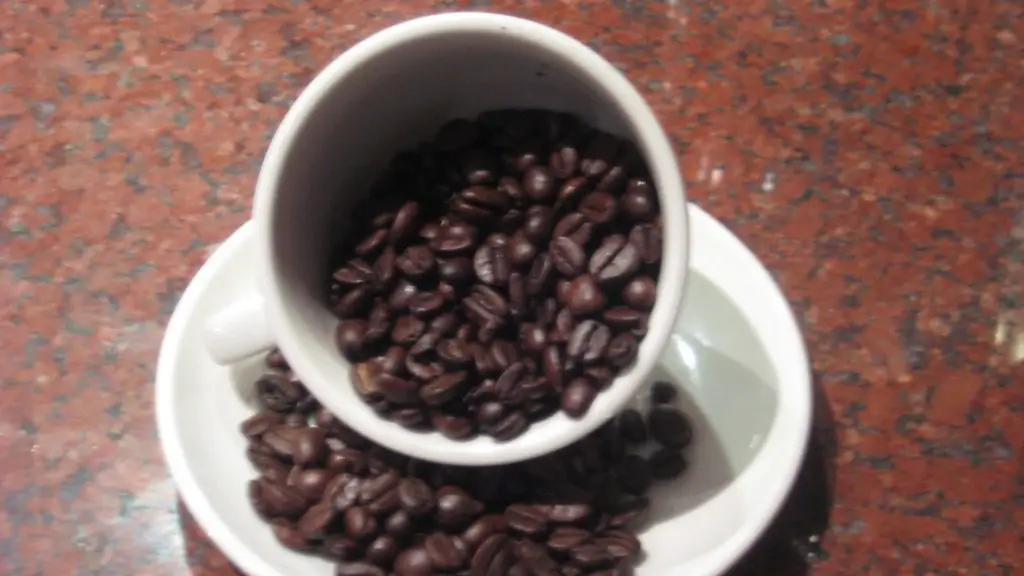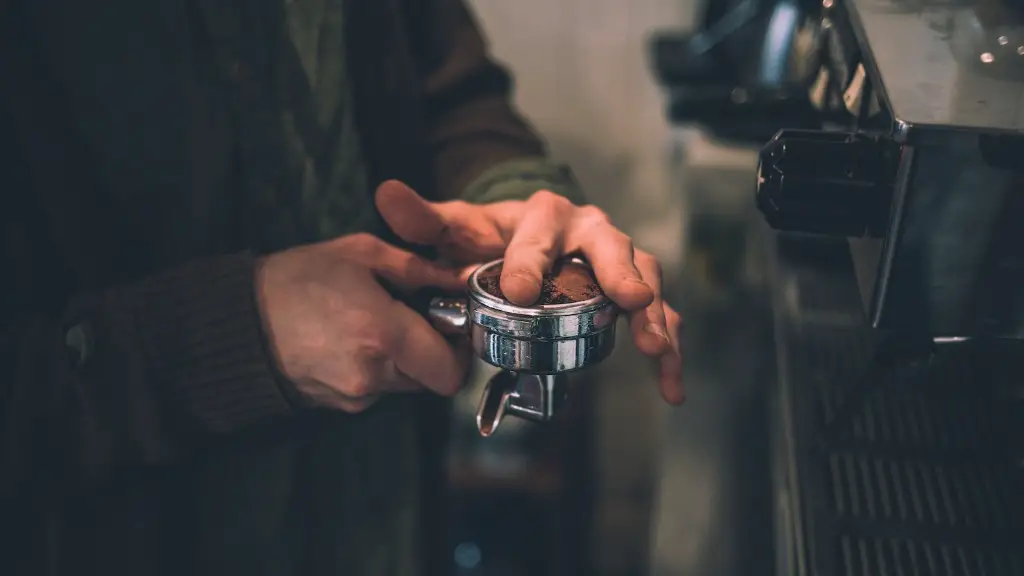Most people don’t realize that eating espresso beans is akin to drinking coffee, in terms of benefits and drawbacks. Although coffee and espresso beans come from the same coffee plant, the finished product is produced in a rather different manner. Espresso beans are ground much finer than coffee beans, and results in a potent shot of coffee with a high concentration of caffeine.
When it comes to the health benefits of espresso beans, they are extremely caffeine-rich, providing a much higher surge of energy than regular drip coffee. In addition, they are a natural source of antioxidants and polyphenols, which help to reduce inflammation, improve lipid profiles, and provide a number of other health benefits. Espresso beans also have less acidity than coffee and are easier to digest, making them a preferable choice for people who have acid reflux.
But there are some potential drawbacks of eating espresso beans. First and foremost, caffeine can be addictive, and too much of it can lead to adverse health effects. Furthermore, the caffeine found in espresso beans is much stronger than that found in traditional coffee. Therefore, it is important to consume espresso beans in moderation and not to exceed the recommended daily intake.
According to experts, one can reap the health benefits of espresso beans by drinking them as is, or adding a few to baked goods or other snacks. Ideally, two or three espresso beans per day is a safe amount for adults as long as they are consumed as part of a balanced diet. Additionally, it is important to keep in mind that espresso beans are not suitable for children, and pregnant women should also avoid them.
It is also important to note that espresso beans, like regular coffee beans, should never be consumed in excess. Consuming more than the recommended amount may lead to unpleasant side effects. Furthermore, consuming too much caffeine can lead to addiction and even withdrawal symptoms, such as headaches, irritability, and insomnia.
In conclusion, it is possible to gain some health benefits from eating espresso beans. However, it is important to remember that they are a high-caffeine food, and should be consumed in moderation. Furthermore, due to their potent caffeine content, they should not be consumed by children or pregnant women.
Coffee or Espresso: Which is Healthier?
When it comes to choosing between coffee and espresso for a healthier intake, experts generally agree that espresso is the better option. Since espresso beans are typically ground much finer than regular coffee beans, they contain higher levels of antioxidants and polyphenols than regular coffee. In addition, due to the higher caffeine content of espresso, these beneficial compounds are more concentrated, providing a stronger boost of energy.
Furthermore, espresso beans have a much lower acidity than coffee, which makes them easier on the stomach. For this reason, they are a good choice for people with acid reflux and other digestive issues. Additionally, since espresso is served in smaller portions, it is less likely to cause the jitters that can result from drinking too much coffee.
On the other hand, coffee can still provide some benefits. Coffee contains antioxidants and polyphenols that can boost heart health, help protect against cancer and metabolic diseases, and may even help improve cognitive function. Additionally, many people find that coffee helps them concentrate better and can make them feel more relaxed.
When it comes down to it, there is no definitive answer as to which is better for your health: regular coffee, or espresso beans. Ultimately, it all depends on how your body responds, and how much caffeine you are comfortable with. If you’re looking for a healthier alternative, then espresso is probably the better choice.
Is Decaffeinated Espresso Just as Beneficial as Regular Espresso?
Decaffeinated espresso beans are a good alternative for anyone who is sensitive to the effects of caffeine, or who prefers to drink coffee without the jitters. While decaffeinated espresso beans do still contain some caffeine, it is much less than regular espresso, so it won’t provide the same level of energy boost. However, the amount of antioxidants and polyphenols found in decaf espresso beans is still the same, so it can still provide a host of health benefits.
Furthermore, since decaffeinated espresso beans are usually made with the same high-quality beans as regular espresso, they tend to have the same rich flavor. This means that you don’t have to sacrifice taste to get the health benefits of an espresso.
Ultimately, decaffeinated espresso beans are an excellent alternative for those who are sensitive to the effects of caffeine. They are just as beneficial as regular espresso, and have a rich, full-bodied flavor that can be enjoyed by just about anyone.
Espresso-Flavored Foods and Beverages
Espresso beans can also be found in a wide range of espresso-flavored foods and beverages. From espressomenthe and chocolate-covered espresso beans, to espresso-flavored yogurt and ice cream, there is no shortage of delicious ways to enjoy the flavor of espresso. In addition, many companies have come up with innovative ways to incorporate espresso beans into a variety of food and beverage products, from energy bars to beer and wine.
Espresso-flavored products are an excellent way to add a little extra flavor to your favorite snacks and meals. From coffee-infused smoothies to espresso-topped desserts, these products can turn an ordinary dish into a delicious treat. Furthermore, these products are a great way to get your espresso fix without consuming too much caffeine.
So if you’re looking for a way to enjoy the flavor of espresso without taking in too much caffeine, then espresso-flavored foods and beverages are a delicious and convenient option.
What is the Best Way to Store Espresso Beans?
Freshly roasted espresso beans are the key to a great cup of coffee, so it is important to store them properly to ensure they stay as fresh as possible. First and foremost, espresso beans should be stored in an air-tight container, away from direct sunlight. In addition, it is important to keep espresso beans away from heat sources as too much heat can spoil the flavor.
Additionally, it is a good idea to store espresso beans in the refrigerator. Since espresso beans contain oils that can quickly become rancid, refrigeration will help slow down the process. Furthermore, the cold temperatures in the fridge can help preserve the flavor of the coffee for a longer period of time.
Finally, it is important to remember that espresso beans should never be stored for too long. It is best to buy beans that have been freshly roasted, and use them within a few days. This is the only way to make sure that you’re getting the most out of your beans.
What Are the Different Roasts of Espresso Beans?
Espresso beans come in a variety of roasts, ranging from light to dark. The roast affects the flavor of espresso, so it is important to choose the right roast for your personal preference. Light roasted beans have a milder flavor, while dark roasted beans have a more robust, flavorful taste.
In addition, light roasted beans tend to have more caffeine than dark roasted beans, so if you’re a caffeine lover, light-roast may be a better option. On the other hand, if you’re looking for a richer flavor, then a dark-roast espresso is the way to go.
When it comes to buying espresso beans, there are so many options available. With a range of roasts, blends, and origins, you can find an espresso that is perfect for your tastes. So whether you prefer a light-roast with a mild flavor, or a dark-roast with a bold flavor, you can find the right espresso for your needs.
Are There Any Downsides to Eating Espresso Beans?
Eating espresso beans is not without its drawbacks. For one thing, they are extremely high in caffeine, and consuming too much of them can have adverse effects, such as nervousness, irritability, and disorders of the heart and blood vessels. Furthermore, since they are so potent, they can be habit-forming, and can lead to addiction and withdrawal symptoms.
Furthermore, espresso beans are not suitable for everyone. Since they are so high in caffeine, they should not be consumed by children or pregnant women. Additionally, those with certain medical conditions, such as anxiety disorders or heart conditions, should consult with their doctor before consuming espresso beans.
Finally, it is important to keep in mind that espresso beans are still essentially a form of coffee, and should be consumed in moderation. Consuming too much can have unpleasant side effects, and can even lead to addiction. Therefore, it is best to stick to a healthy, balanced diet and to limit your espresso bean intake to two or three beans per day.





